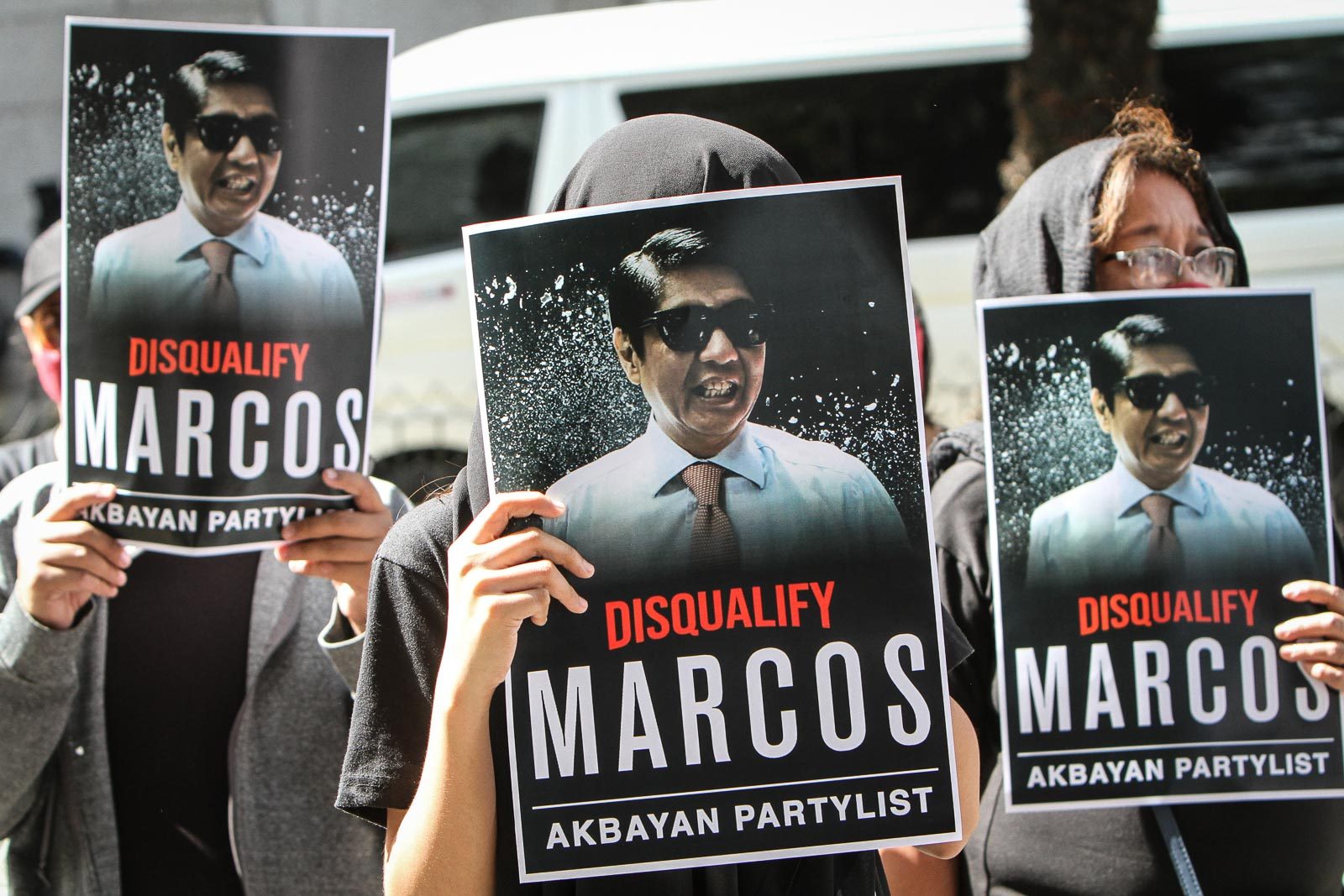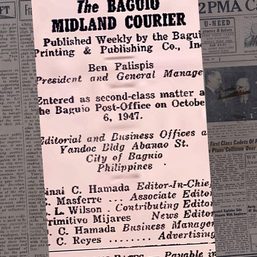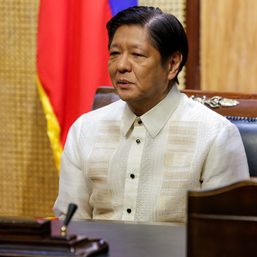SUMMARY
This is AI generated summarization, which may have errors. For context, always refer to the full article.

Ferdinand “Bongbong” Marcos Jr, whose father ruled the country with a brutal and rapacious hand and whose mother was convicted of graft, enjoys a wide lead in the early polls for the 2022 presidential race. This is a disquieting fact. It shows that undercurrents of change have been bubbling in Philippine society for years – and have now fully surfaced.
In a past newsletter, I wrote about factors that have helped rehabilitate the Marcoses. There is no single explanation for this phenomenon. I am sure academics, journalists and researchers will write tomes on this phase in our country’s history and help us understand our society better.
We are not unique, though, when it comes to near- or full restoration of disgraced politicians. In Peru, the daughter of a jailed ex-president, Keiko Fujimori, led the race for the presidency last year but lost in a tight runoff. This was her third run for president.
Park Gyun-hye, daughter of controversial strongman Park Chung-hee, became Korea’s first female president in 2012. She was dogged by a corruption scandal, was impeached by parliament in December 2016 and officially ousted three months later when the supreme court upheld the decision. Park was then arrested on corruption charges.
Bongbong and Marcos estate
Here at home, supporters of Bongbong Marcos argue that the sins of the parents shouldn’t be visited upon the son. This reasoning seems to gain a lot of traction as the son is portrayed as an innocent bystander while the parents looted the public coffers, stashed these in Swiss banks and elsewhere, and fought lawsuits to keep them. What is overlooked is the fact that Bongbong himself is embroiled in at least two cases involving his family’s ill-gotten wealth and is an active participant in defending their stolen riches.
The first has to do with his role as executor of the Marcos estate together with his mother, Imelda Marcos. When Ferdinand Marcos died in 1989, his heirs – Imelda, Imee, Bongong and Irene – did not pay any estate tax. At the time, the Bureau of Internal Revenue (BIR) computed the estate tax at P23.3 billion. Today, with the piling interest rate and penalty, the amount has soared to P203.8 billion.
This case reached the Supreme Court. Before that, it was Bongbong who filed a petition with the Court of Appeals questioning the BIR’s tax assessment, leading the family’s defense.
Here’s what former Supreme Court Justice Antonio Carpio wrote in his Inquirer column last year:
“The Marcos heirs simply ignored all the notices sent by the BIR. However, when the BIR served notices to the Marcos heirs that real properties in the name of Ferdinand Marcos would be auctioned off to pay the estate tax, Bongbong Marcos filed a petition with the Court of Appeals questioning the validity of the estate tax assessment on the flimsy ground that the BIR had no jurisdiction over the assets of the deceased Marcos because the assets were in the custody of the probate court.
The Court of Appeals dismissed Bongbong Marcos’s petition on the ground that the estate tax assessment had already become “final and unappealable.” Twenty-four years after the Supreme Court affirmed the Court of Appeals decision, the Marcos heirs still have not paid the estate tax.”
US warrants of arrest
In the US, cases hound Imelda, Imee, and Bongbong. They are wanted in the US because they failed to comply with the decisions of a Hawaii court’s rulings on how the family’s seized assets should have been disbursed to the victims of human rights violations.
Myles Garcia, a US-based writer who has followed the Marcos cases there, wrote in 2016 that a judgment, issued by a Hawaii court in 2011, “specifically for violating a US court order not to dissipate their assets, elevated the classification of the judgments against the Marcoses from ‘civil’ status to ‘criminal,’ thus making the defendants culpable of jail sentences.”
I asked Garcia, via email, what this means. He said they are “automatically ‘Wanted’ for failing to comply with the law.”
Are there actual warrants of arrest? Garcia said these may have been served to the Marcos lawyer defending their interests in the Hawaii court cases.
Former Supreme Court chief justice Maria Lourdes Sereno wrote on this issue in her Facebook post: “Usually po, kapag may deklarasyon ng “contempt” sa isang litigant, mayroong inilalabas na arrest warrant ang korte na nag-uutos sa law enforcement authorities na hulihin at ikulong ang taong in-contempt hangga’t masunod niya ang utos ng korte.”
(“Usually, when there is a declaration of ‘contempt’ versus a litigant, the court issues an arrest warrant or authorizes law-enforcement authorities to arrest and jail the person in contempt until he/she complies with the court order.”)
What led to this? Garcia wrote in Positively Filipino, a US-based online magazine, the background of the cases:
“In January 2011, after 17 years of the Marcoses appealing the earlier verdicts (all of which were rejected), making Philippine courts try to void the Hawaii court judgments, and all but making no effort to even meet some of the judgments, the Hawaii courts again slapped Imelda, Bongbong and Imee with another $353.6 million fine in contempt of court.
It was the largest award for a contempt case ever on record, for ignoring the court’s earlier judgments and the court knowing that the Marcoses have the wherewithal to pay up. But the Marcoses failed in all their appeals of the…US judgments.”
At the time, Imelda and Bongbong refused to comment on the contempt of court, the Inquirer reported.
As things stand, will presidential candidate Bongbong be able to travel to the US? No, says Ruben Carranza, former commissioner of the Philippine Commission on Good Government. Arrest warrants await the Marcoses if they set foot in the US.
Add a comment
How does this make you feel?
![[In This Economy] Marcos’ POGO ban is popular, but will it work?](https://www.rappler.com/tachyon/2024/07/thought-leaders-marcos-pogo-ban.jpg?resize=257%2C257&crop=255px%2C0px%2C720px%2C720px)
![[Rappler Investigates] POGOs no-go as Typhoon Carina exits](https://www.rappler.com/tachyon/2024/07/newsletter-graphics-carina-pogo.jpg?resize=257%2C257&crop=424px%2C0px%2C1080px%2C1080px)






![[OPINION] If it’s Tuesday it must be Belgium – travels make over the Marcos image](https://www.rappler.com/tachyon/2024/04/tl-travel-makeovers-marcos-image.jpg?resize=257%2C257&crop_strategy=attention)




![[OPINION] Raised on radio](https://www.rappler.com/tachyon/2024/04/raised-on-radio.jpg?resize=257%2C257&crop=396px%2C0px%2C720px%2C720px)
![[Just Saying] Marcos: A flat response, a missed opportunity](https://www.rappler.com/tachyon/2024/04/tl-marcos-flat-response-april-16-2024.jpg?resize=257%2C257&crop=277px%2C0px%2C720px%2C720px)


There are no comments yet. Add your comment to start the conversation.